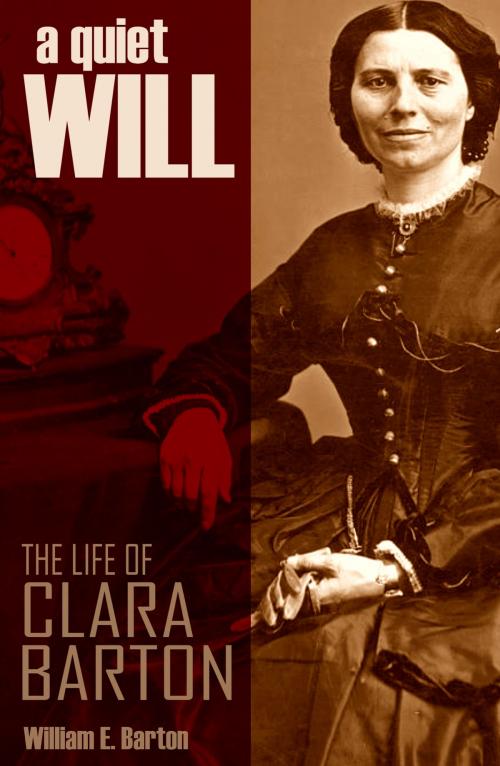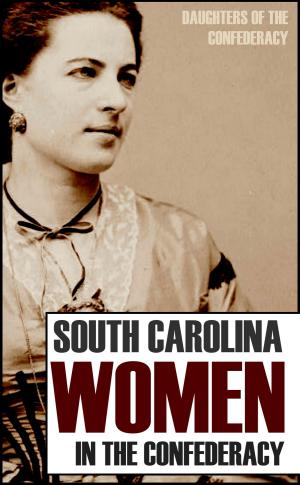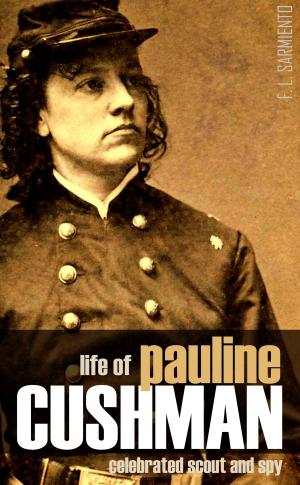A Quiet Will: The Life of Clara Barton (Abridged, Annotated)
Nonfiction, Social & Cultural Studies, Social Science, Volunteer Work, History, Americas, United States, Civil War Period (1850-1877), Biography & Memoir, Historical| Author: | William E Barton | ISBN: | 1230001448405 |
| Publisher: | BIG BYTE BOOKS | Publication: | November 30, 2016 |
| Imprint: | Language: | English |
| Author: | William E Barton |
| ISBN: | 1230001448405 |
| Publisher: | BIG BYTE BOOKS |
| Publication: | November 30, 2016 |
| Imprint: | |
| Language: | English |
Like Florence Nightingale, Clara Barton was so much more than the "Angel of the Battlefield." It was not until the American Civil War that she found her calling. As a young woman, she struggled with the deep emotions that would be a lifelong trait.
"1852: I have found it extremely hard to restrain the tears today, and would have given almost anything to have been alone and undisturbed. I have seldom felt more friendless, and I believe I ever feel enough so. I see less and less in the world to live for, and in spite of all my resolution and reason and moral courage and everything else, I grow weary and impatient. I know it is wicked and perhaps foolish, but I cannot help it. There is not a living thing but would be just as well off without me. I contribute to the happiness of not a single object; and often to the unhappiness of many and always of my own, for I am never happy. True, I laugh and joke, but could weep that very moment, and be the happier for it."
She received an appointment as clerk in the Patent Office at a salary of $1400 a year. She was one of the first, and believed herself to have been the very first, of women appointed to a regular position in one of the departments, with work and wages equal to that of a man. Then came the catastrophe of the Civil War.
Early on, she decided that marriage would not be the direction of her life. She didn't just throw herself into her battlefield work...she reinvented how it should be done. She operated independently from Dorothea Dix and the corps of army nursing. She went where the shells were flying.
After the war, she worked tirelessly to find out the fate of missing soldiers. From the beginning of the year 1865 to the end of 1868 she sent out 63,182 letters of inquiry.
But her crowning achievement was not the fame she gained and the company of the powerful. She fought tooth and nail against an isolationist United States to gain acceptance of the Treaty of Geneva, which helped her found the American Red Cross.
Nearly to the end of her long life, she worked in the field, often at the cost of her own health. But she was no shrinking violet. She knew how to fight quietly and plied her inflexible will upon the causes that mattered most to her: the Red Cross, abolition of slavery, women's rights, and relief of suffering.
There has probably not been a better biography of Barton than this two-volume set by William Barton published in 1922. For the first time, both volumes are together in a well-formatted ebook version.
Every memoir of the American Civil War provides us with another view of the catastrophe that changed the country forever.
Be sure to LOOK INSIDE by clicking the cover above or download a sample.
Like Florence Nightingale, Clara Barton was so much more than the "Angel of the Battlefield." It was not until the American Civil War that she found her calling. As a young woman, she struggled with the deep emotions that would be a lifelong trait.
"1852: I have found it extremely hard to restrain the tears today, and would have given almost anything to have been alone and undisturbed. I have seldom felt more friendless, and I believe I ever feel enough so. I see less and less in the world to live for, and in spite of all my resolution and reason and moral courage and everything else, I grow weary and impatient. I know it is wicked and perhaps foolish, but I cannot help it. There is not a living thing but would be just as well off without me. I contribute to the happiness of not a single object; and often to the unhappiness of many and always of my own, for I am never happy. True, I laugh and joke, but could weep that very moment, and be the happier for it."
She received an appointment as clerk in the Patent Office at a salary of $1400 a year. She was one of the first, and believed herself to have been the very first, of women appointed to a regular position in one of the departments, with work and wages equal to that of a man. Then came the catastrophe of the Civil War.
Early on, she decided that marriage would not be the direction of her life. She didn't just throw herself into her battlefield work...she reinvented how it should be done. She operated independently from Dorothea Dix and the corps of army nursing. She went where the shells were flying.
After the war, she worked tirelessly to find out the fate of missing soldiers. From the beginning of the year 1865 to the end of 1868 she sent out 63,182 letters of inquiry.
But her crowning achievement was not the fame she gained and the company of the powerful. She fought tooth and nail against an isolationist United States to gain acceptance of the Treaty of Geneva, which helped her found the American Red Cross.
Nearly to the end of her long life, she worked in the field, often at the cost of her own health. But she was no shrinking violet. She knew how to fight quietly and plied her inflexible will upon the causes that mattered most to her: the Red Cross, abolition of slavery, women's rights, and relief of suffering.
There has probably not been a better biography of Barton than this two-volume set by William Barton published in 1922. For the first time, both volumes are together in a well-formatted ebook version.
Every memoir of the American Civil War provides us with another view of the catastrophe that changed the country forever.
Be sure to LOOK INSIDE by clicking the cover above or download a sample.















